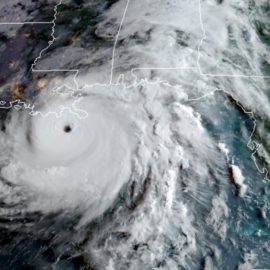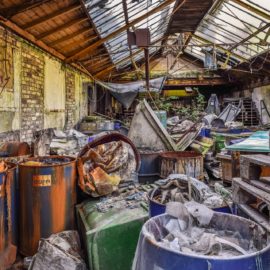
Some bills the Governor vetoed and we smiled. Others he signed and we smiled. Still others he signed and we groaned. This is one we groaned about. There was an earlier post on this possibility but hope was a veto, that did not occur.
Gov. John Bel Edwards has signed a bill that encourages Louisiana industrial plants to report some pollution mishaps to the state government but keeps records of those accidents hidden from the public for as long as two years. House Bill 72 by Rep. Jean-Paul Coussan, R-Lafayette, passed both chambers of the Legislature this spring with overwhelming majorities. The new law lets industries report toxic spills and releases that wouldn’t normally qualify for mandatory reporting to state or federal authorities. During debate on the House floor in May, Coussan and other lawmakers touted the idea as a way to provide the Department of Environmental Quality with information on minor accidents that it wouldn’t normally receive. Coussan said it also would allow industries to be good stewards of the environment by reporting minor incidents that pose little or no risk to the environment or community. However, Broderick Bagert of Together Louisiana, a coalition of religious and community groups, said industrial plants have long been disclosing releases on their own. He said the legislation actually has more to do with hiding those records from the public. “What was presented in committee was an inaccurate representation as it turns out,” Bagert said.
This bill was one that groups opposed and it is true, that the worst part may well be hiding the information for two years.
Coussan disagreed, saying the bill doesn’t expand any confidentiality statutes that don’t already exist. “Basically the current policy right now is when DEQ is in an enforcement action, the enforcement action is not public. This bill doesn’t change that,” Coussan said. “This program falls under the enforcement authority of DEQ.” The new law states that “information contained in a voluntary environmental self-audit authorized by R.S. 30:2044 shall be held confidential by the department and shall be withheld from public disclosure until a final decision is made, or for a period not to exceed two years, whichever occurs first.” The environment department is required to publish any final decision on its website once the secrecy period expires. The law also instructs the department to establish regulations regarding the self-audit program, and Bagert said these regulations will likely determine what information will be kept secret and what will be available to the public.
Bagert then cited examples of industry reporting faux pas to show where the bill might be weak.
He pointed to an accident last month at the Domino Sugar refinery. A contractor called the environment department to report an acid gas leaking into the air. The contractor did not report how much gas or for how long it had been leaking, thus the Department of Environmental Quality deemed it to be below the reportable level, according to public records provided by Bagert. Bagert referred to records submitted to the environment department for several other accidents in which the actual levels of the pollution were either unknown or left off the record, prompting the department to accept them as minor non-reportable incidents. In one case on May 8, the oil and gas company Lobo Operating Inc. discovered one of its pipelines leaking in Breton Sound after someone noticed a sheen of oil on the surface. According to the document submitted to the environment department, the oil sheen was measured at 10 feet wide by 2 miles long yet was deemed to be less than a half gallon and below the reportable quantity. The report further indicated that the sheen escaped “beyond the incident location” and was unrecoverable.
If we believe in transparency in government then Bagert is worried about how the public can find out about these “minor” spills and incidents.
Bagert said he worries the public might no longer have access to these types of records if such accidents involving unknown quantities of released pollution are deemed minor events and accepted under the self-audit program. But he said he is optimistic after the governor’s office told him it would work with Together Louisiana on implementing the new regulations. Violations that should not qualify for environmental self-audits, according to the new law, include ones: “That result in serious actual harm to the environment, “That may present an imminent or substantial endangerment to public health or the environment, “Discovered by the department prior to the written disclosure of the violation to the department and “Detected through monitoring, sampling or auditing procedures that are required by statute, regulation, permit, judicial or administrative order or consent agreement.”
The other questionable part of the bill was the lack of a need to hold public hearings to let the public talk and submit comments on the actions.
Another significant change under the new law is that the environment department is no longer required to hold public hearings on environmental assessments of plants that apply for pollution permits. Rather, it states, “the department may and, if requested, shall conduct a public hearing on the environmental assessment statement in the parish where the facility is located.” Additionally, the law instructs the department to develop new regulations that, among others, establish financial incentives for companies in the form of reducing or eliminating civil penalties for violations disclosed in a self-audit.
The question will be how much will the state listen to Together Louisiana as the work for implementing this bill. If Together Louisiana has a say, enforcement might be better. If no, then the state will do what they will.



